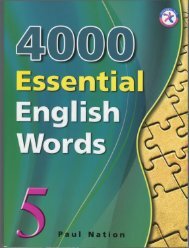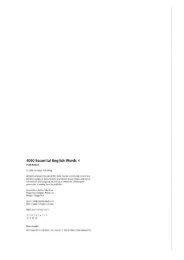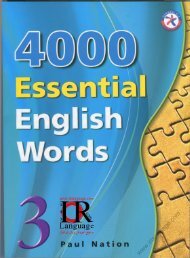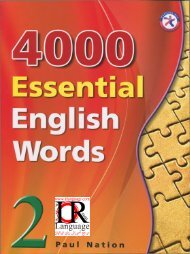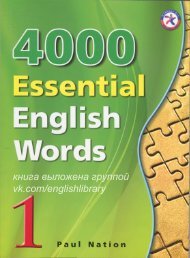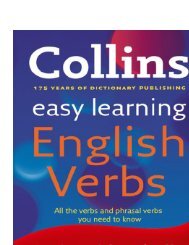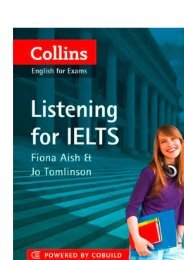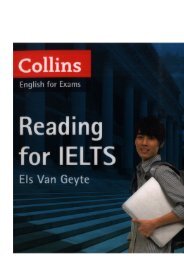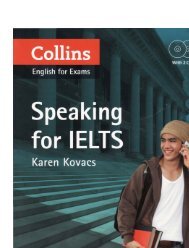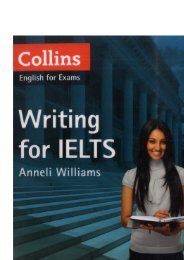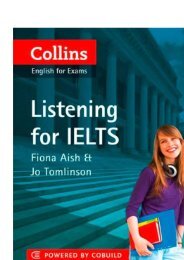4000englishwords6
You also want an ePaper? Increase the reach of your titles
YUMPU automatically turns print PDFs into web optimized ePapers that Google loves.
It should be noted that words have more than one grammatical category. However, this<br />
series focuses on the word’s most common form. This is mentioned to remind learners<br />
that just because a word is labeled and utilized as a noun in this series does not mean<br />
that it can never be used in another form such as an adjective. This series has simply<br />
focused on the word in the form that it is most likely to be expressed.<br />
Supporting Learning with Outside Activities<br />
A well-balanced language course provides four major opportunities for learning: learning<br />
through input, learning through output, deliberate learning, and fluency development. The<br />
highly structured activities in these books support all four types of learning opportunities.<br />
In addition, learning can further be supported through the following activities:<br />
1 Have students create vocabulary cards with one word from the unit on one side of the<br />
card and the translation of the word in the student’s first language on the other side.<br />
Students should use the cards for study in free moments during the day. Over several<br />
weeks, students will find that quick repeated studying for brief periods of time is more<br />
effective than studying for hours at one sitting.<br />
2 Assign graded readers at students’ appropriate levels. Reading such books provides<br />
both enjoyment as well as meaning-focused input which will help the words stick in<br />
students’ memory.<br />
3 Practice reading fluency to promote faster recall of word meaning for both sight<br />
recognition and usage. Compass Publishing’s Reading for Speed and Fluency is a<br />
good resource for reading fluency material.<br />
4 Include listening, speaking, and writing activities in classes. Reinforcement of the<br />
high-frequency vocabulary presented in this series is important across all the four<br />
language skills.<br />
A u th o r Paul Nation<br />
Paul Nation is professor of Applied Linguistics in the School of Linguistics and Applied Language Studies<br />
at Victoria University of Wellington, New Zealand. He has taught in Indonesia, Thailand, the United States,<br />
Finland, and Japan. His specialist interests are language teaching methodology and vocabulary learning.<br />
www.irlanguage.com




